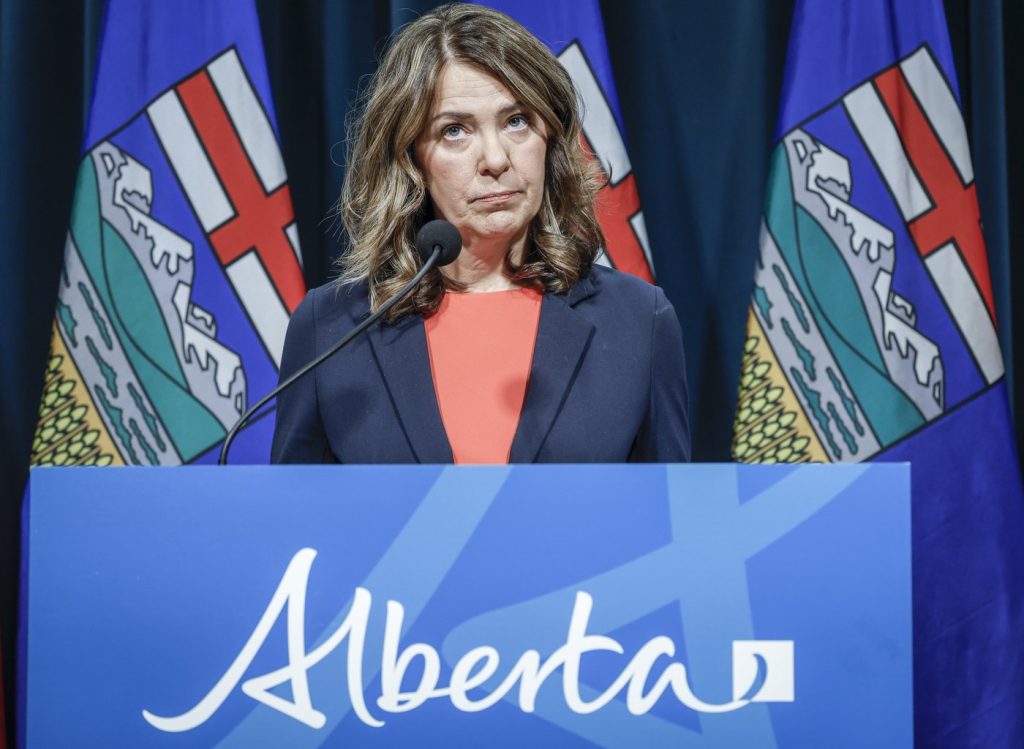The Alberta Teachers’ Association has strongly criticized the provincial government's use of the Charter’s notwithstanding clause to end their strike, labeling it a "gross abuse of power." In a statement released early on Tuesday, the union asserted its intention to explore all possible legal avenues to contest Bill 2, which it described as an "egregious assault" on the collective bargaining rights of both teachers and workers in general.
In anticipation of support from organized labor, civil society, and the general public, the Teachers’ Association declared, "This fight has just begun." This statement coincided with the United Conservative Party, led by Premier Danielle Smith, swiftly passing the bill through the legislature—a process that included imposing time limits on debate, allowing the entire procedure to be completed in just six and a half hours. The bill received its third and final reading at 2 a.m. Tuesday, eliciting shouts of "Shame!" from opponents.
Under the stipulations of Bill 2, the Alberta Teachers’ Association and its members could face significant fines for violating the back-to-work order, amounting to $500 per day for individuals and $500,000 per day for the union. During the legislative debate, Education Minister Demetrios Nicolaides expressed that the government had an "undeniable moral imperative" to halt the three-week strike, arguing that it was detrimental to students' social and educational development.
Notably, Premier Smith was absent during the bill's introduction and passage, having departed earlier in the evening for a trade mission to Saudi Arabia and other Middle Eastern countries. The Opposition NDP criticized the government's actions, labeling the use of the notwithstanding clause as an authoritarian maneuver that contradicts a professed commitment to freedom and liberty. NDP Leader Naheed Nenshi accused the government of taking "nuclear" options to address issues in public education that they had created.
The repercussions of this legislative action could put Smith's government at odds with the Common Front, a coalition representing over 350,000 members from various provincial unions. The Common Front has warned of an "unprecedented response" against the government's decision to override teachers’ constitutional rights. Gil McGowan, president of the Alberta Federation of Labour, indicated that they are considering various responses, including potential strikes. He also pledged solidarity to Alberta teachers, stating that they "will not stand alone" in this fight.
McGowan announced that meetings were scheduled for Tuesday, with a public announcement expected on Wednesday. He emphasized that the executive council of the Canadian Labour Congress would convene in an emergency session to discuss further actions. McGowan did not shy away from confronting Premier Smith, stating that she was "the bully going after workers’ rights and democracy" and reaffirmed the commitment to stand against such actions.
The Teachers’ Association echoed the sentiment that the government's invocation of the notwithstanding clause fundamentally undermines unions. They articulated that the legislation violates the essential principles of collective bargaining and undermines the ability of workers to organize. The union warned that an attack on teachers' rights to free association represents a broader assault on all workers' rights, warning of a dangerous precedent that could allow the government to infringe upon other fundamental freedoms and individual rights.
Historically, the use of the notwithstanding clause to curtail labor actions has precedent; in 2022, Ontario Premier Doug Ford's government invoked it to block a court challenge against a bill intended to stop a strike by school support workers, leading to widespread protests that ultimately led to the repeal of the legislation.
Prior to the bill's introduction, Premier Smith had stated that the scale of the strike—the largest in Alberta's history—and the necessity for ongoing labor stability in schools warranted such an action. The strike, which began on October 6, 2025, has affected over 740,000 students. The bill proposed a collective bargaining agreement that had previously been rejected by rank-and-file teachers, which included a proposed 12 percent wage increase over four years, alongside promises to hire additional educators and support staff. The union's concerns center around overcrowded classrooms and inadequate support for students with specialized needs, which they have insisted require immediate address.
In her recent commitments, Smith has pledged to collect and publicly report data on classroom sizes—an initiative that had been abandoned under the previous leadership of Jason Kenney—and to establish a special panel to focus on classroom complexity. However, the Teachers’ Association concluded their statement by reaffirming that despite the potential end to the strike facilitated by the legislation, the ongoing issues of underfunding and deteriorating teaching conditions would not be resolved.











